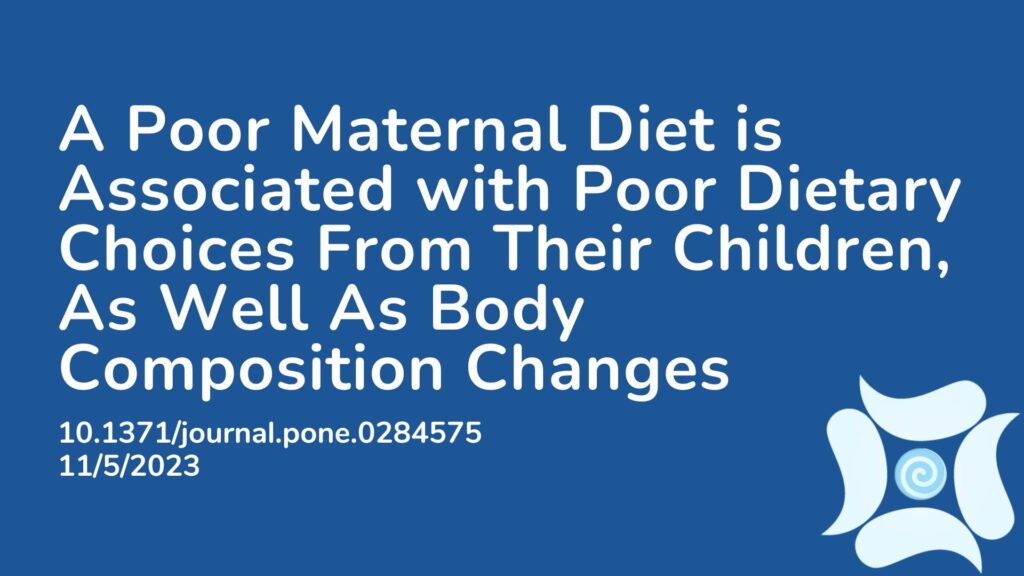Summary:
This prospective longitudinal study aimed to assess whether there is an association between the quality of a maternal diet and the subsequent diet and body composition of their children. There were 83 mother and children pairs that participated in the study. The mothers were interviewed three times (shortly after birth and then at preschool age) to assess the quality of the maternal diet and their nutritional status. The results showed that the more frequently there was maternal consumption of unprocessed foods, the more likely their children were to consume this diet as well. On the other hand, the higher the consumption of ultra-processed foods, the higher the children’s measures of body fat. The authors therefore concluded that maternal diet quality was associated with the diet of their children, as well as body composition.
Abstract:
Background: Nutrition, associated with nutritional status, influences the growth of children. This study aimed to identify the association between maternal diet quality and the diet and body composition of their children. Methods: This is a prospective longitudinal study with mother-child pairs. To assess diet quality, nutritional status, and socioeconomic data, two interviews in the children’s first and third months of life (2011–2016) and one interview when children were of preschool age (2017–2019) were performed. Diet quality was assessed based on daily food consumption and frequency, considering: 1) food groups, based on the Brazilian food pyramid; 2) level of processing, according to the NOVA classification (unprocessed and/or minimally processed foods, processed foods and ultra-processed foods). One-way ANOVA with Tukey post hoc and Kruskal-Wallis with Dunn’s post hoc tests were used to evaluate the influence of factors on children’s diet quality. Pearson and Spearman’s correlations were used to evaluate the relationship between maternal and children’s diet quality, maternal schooling level, and child age. Along with the nutritional assessment of children, multiple linear regression models assessed the impact of covariables on maternal and children’s diet quality. Results: Eighty-three mother-child pairs participated in this study. The more frequent the maternal consumption of unprocessed and/or minimally processed foods, the higher the consumption of these foods by children (r = +0.30; p = 0.006) and the lower their subscapular skinfold (SSF) thickness (p = 0.011; β = -0.278). On the other hand, the higher the maternal consumption of ultra-processed foods, the higher the children’s tricipital skinfold (TSF) thickness (p = 0.010; β = +0.274) and SSF (p = 0.043; β = +0.222). Conclusion: Maternal diet quality was associated with the diet and body composition of children.
Article Publication Date: 11/5/2023
DOI: 10.1371/journal.pone.0284575




